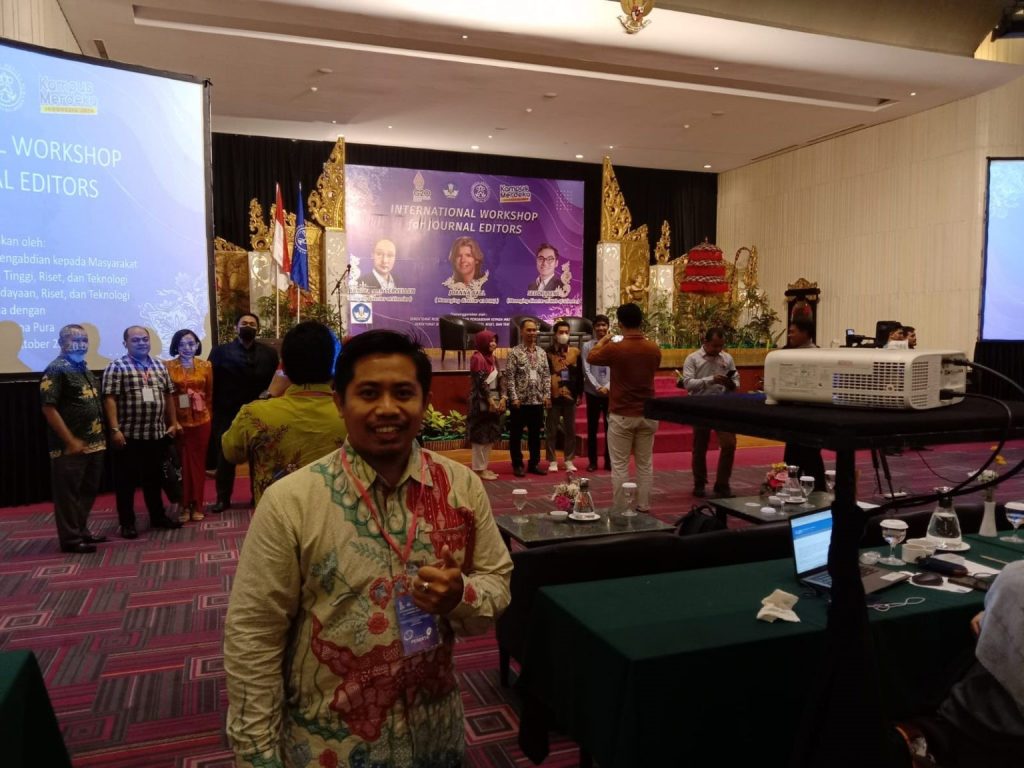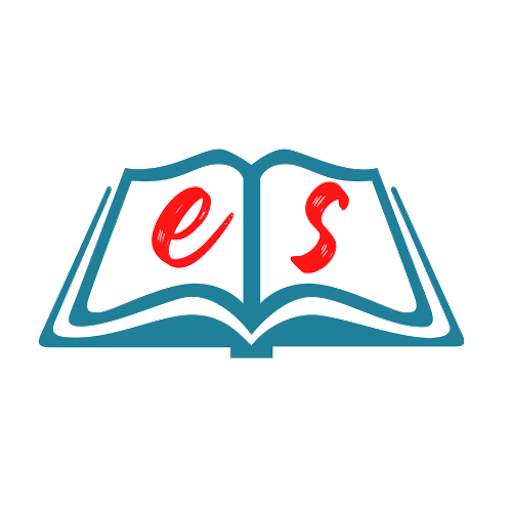BALI – Muhammad Taqiyuddin, M.Ag. Manager of Tsaqafah Journal and Reza Hutama Al Faruqi, M.Ag. Manager of Tasfiyah Journal, University of Darussalam (UNIDA) Gontor selected to take part in the International Workshop for Journal Editors in Bali offline. (Thursday, October 20, 2022). This workshop was organized by the Directorate of Research, Technology and Community Service – Ministry of Education, Culture, Research and Technology in collaboration with Dhyana Pura Bali University in its implementation.
Acara yang berlangsung pukul 08:30 WITA diikuti oleh 200 peserta dari berbagai pengelola jurnal di Indonesia. Yoga Dwi Arianda, ST Koordinator Jurnal dan Publikasi Ilmiah yang dalam kesempatan tersebut mewakili Direktur Riset, Teknologi dan Pengabdian Kepada Masyarakat diawal sambutannya menyampaikan pemaparan kebijakan terbaru tentang Jurnal Ilmiah dan Publikasi Ilmiah.
“There are four substances managed by this Directorate. One of them is the Scientific Journal and its Accreditation. The number that has been accredited is 7401 at various levels.” he explained.
According to him, there are several recent policies related to scientific journals, among which are holding various supporting facilities such as scientific article writing workshops, journal accreditation assistance to management assistance funds for scientific journals towards reputable international indexes.
In addition, Scientific Journal Accreditation needs to pay attention to 11 important points. Among them is in terms of compatibility between journal names and those registered on ISSN. Mandatory editor from 2 different institutions (proven involvement in the system). Obviously.
In this workshop, the first 3 (three) speakers were Alexander van Servellen from Elsevier, accompanied by Prof. Istadi from Diponegoro University with the material “Scopus Selection Criteria and Evaluation Process”. The second guest speaker was See Dui Seng from Clarivate Analytics, accompanied by Prof. I Komang Gede Wiryawan from IPB with the material “Web of Science Selection Criteria and Evaluation Process” and the third resource person was Leena Shah from DOAJ and Prof. Kuswanto from Brawijaya University with the material “DOAJ Selection Criteria and Evaluation Process”.

The first speaker, is Alexander van Servellen. A Dutch national, whose grandfather was Indonesian (Purwokerto) had studied in the Netherlands. Then married a Dutch woman, and lived in Jakarta. He himself has been working at Elsevier since 2008 and lives in Singapore.
There is something interesting in his presentation, that journals with local language content (including Indonesian) may be submitted for indexing to Scopus, with the condition that the abstract is in English. Publication Ethics Statement (must refer to COPE) and has uniqueness (in terms of knowledge and relationship with reviewers).
Then Journal Standing is absolute: Citedness article in Scopus and Editor Standing (with Scopus ID). This speaker also explained that a number of rejected Journal Presentation data from Indonesia was 84%. When rejected from Scopus Submission, they will be embargoed for 2 years.
International Journals must contain International Editorials as well as publish articles from international authors. Local journals can also be indexed by Scopus. So it’s better not to write ‘international journal’ carelessly unless it meets these requirements. Peer review doesn’t always have to be blind. There are Open Peer Reviews (author and reviewer know each other), Single Blind (reviewers can find out the author’s identity), and Double Blind (both reviewers and writers don’t know) all of which are no problem.
The next speaker is See Diu Sheng from Web Of Science Management in Singapore. The development of WoS indexed journals in Indonesia, there are 71 WoS indexed journals which in 2023 will receive an Impact Factor.
In the selection, there are 28 overall criteria with 4 macro processes: a) Initial (ISSN, url, content accessibility, peer review policy), b) editorial and article substance (concent: original, review, case studies) Indonesian is also allowed, ethical policy and malpractice statement) c) Editorial Quality (relevance of content, details of supporting funds – if research, community standards, suitability of references to the topic, author distribution, ethical statements) – if not accepted, then embargo 2 years from submission. d) the same as number d, but the implementation of the ethical statement. In WoS, there are two clusters: a) getting the Impact Factor (Science Citation Index (SCI), Social Sciences Citation Index (SSCI), and the Arts and Humanities Citation Index (AHCI) )) and b) do not have (ESCI).
Latest material on the Index at DOAJ by Leena Shah, Managing Editor, DOAJ. In order for the journal to be indexed in DOAJ, then:
- Online journal with accessories (E-ISSN, OJS, editorial board page, Publication Ethics and Malpractice Statement page, Review Policy page, online article pdf with doi),
- Standing Editor in Chief (editor activeness in publications),
- Editorial from various countries,
- Have an abstract and title in good and clear English (article content may be in any language including Indonesian), clear Aim and Scope (what is included, and what is not),
Tips and tricks:
- Show Scopus ID from Editor in Chief.
- The pdf format of the article must contain information: journal name, volume, issue, page, author, affiliation, date of receipt, review, and date set for acceptance and publication (submitted, reviewed, accepted, and published online).
- Improve the quality of English in titles and abstracts and use them consistently as standard.
- Indicate the suitability between the article and Aim and Scope.
- (for Scopus), multiply articles to be cited in Scopus indexed journals.
- The submission must include: 1) title page, 2) author agreement, and 3) ethical statement (can be included in the title page).
- Do not rush to write ‘International Journal’ because there are consequences: the editorial must be more than 5 countries as well as the author.
(Taqiyuddin & Reza Hutama)




